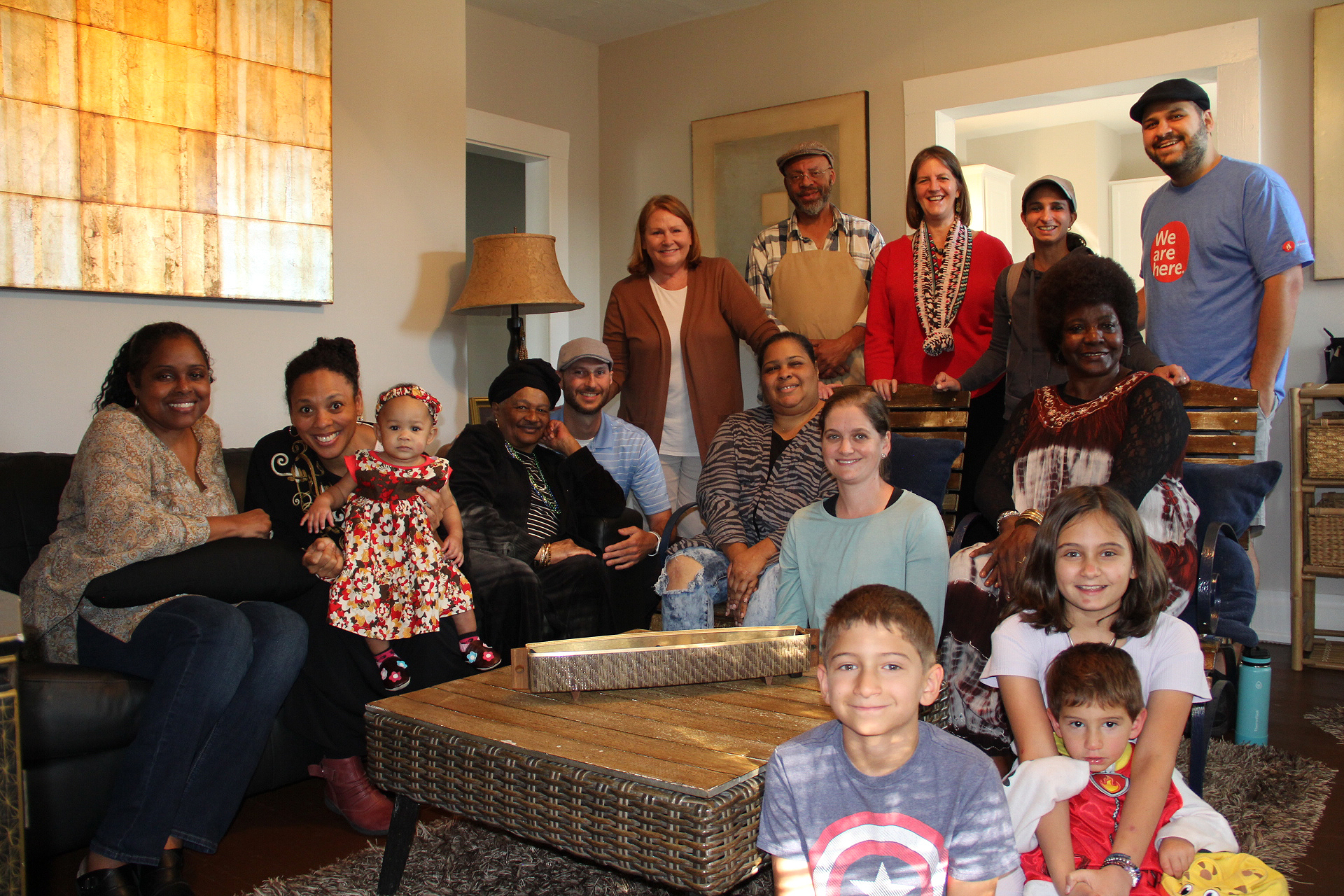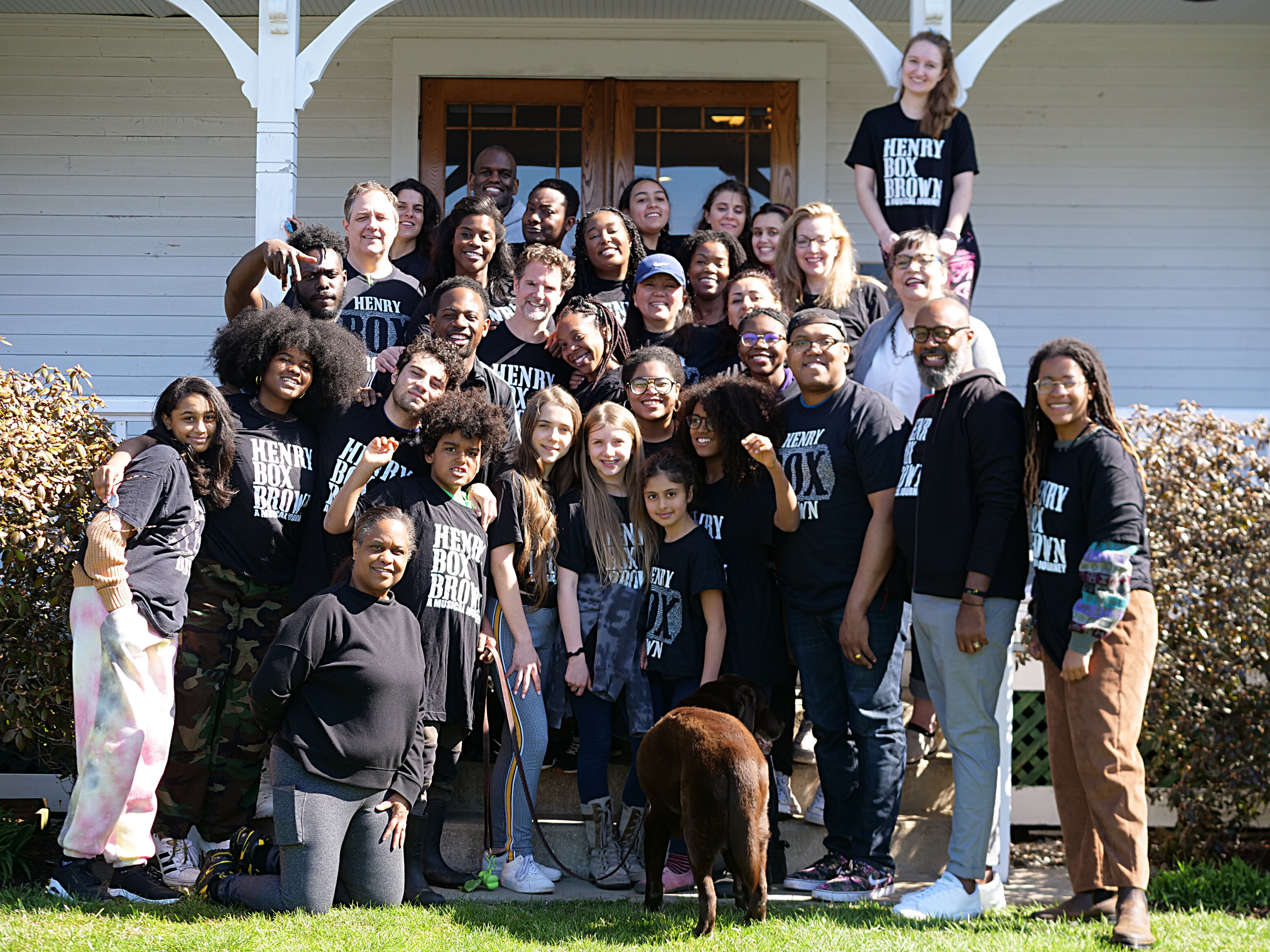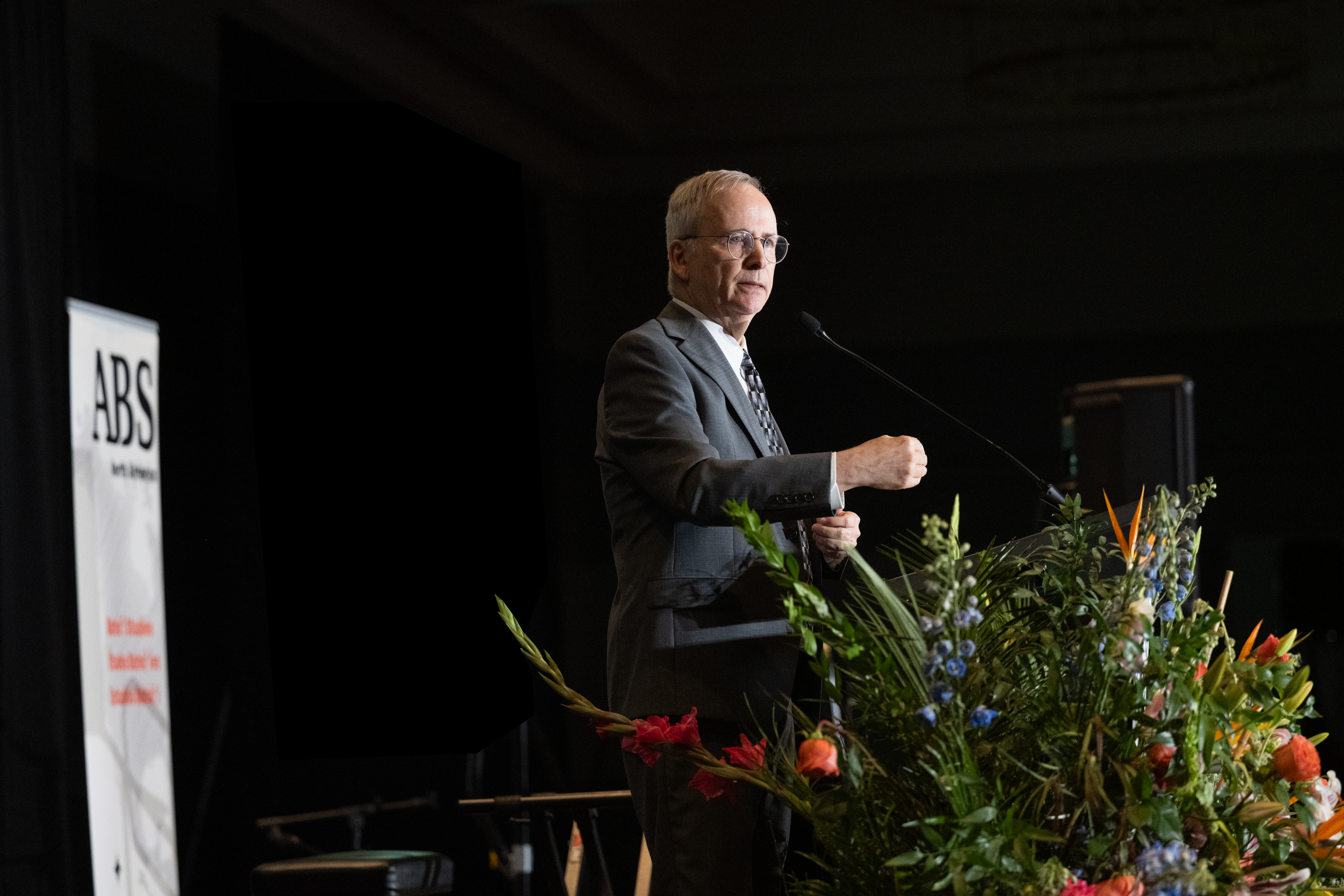
The Pupil of the Eye Cultural Learning & Visitors Center Opens in Birmingham, Alabama, with Focus on Community Building

By Layli Miron
The Pupil of the Eye Cultural, Learning & Visitors Center Opens in Birmingham, Alabama, with Focus on Community BuildingBirmingham, Alabama, has long been a center of Black activism. Today, a program to bring more Black people into the community-advancing work of the Baha’i Faith is taking shape in this historic city. The Pupil of the Eye Cultural, Learning and Visitors Center serves as a home base for efforts to empower residents to build thriving neighborhoods. Its name refers to the teaching of Baha’u’llah likening Black people to the pupil of an eye, through which “the light of the spirit shineth forth.”
The story of the Pupil of the Eye Center starts with Angela Murray, Aliyah Aziza Ogbue’, and Arnicia Tucker. These three Black Baha’i women, who call themselves “spiritual triplets,” were drawn together from different cities to serve the Birmingham community.
Decades ago, Murray was introduced to the Baha’i Faith by a fellow student teacher in Los Angeles, Talibah Sun. Murray moved to Birmingham where she taught in the city school district for 23 years. Sun eventually moved to Belize to do Baha’i service, and the two friends lost contact.
In 2016 Murray and Sun found each other through social media. Murray explains, “She told me to connect with the Birmingham Baha’is. I did.” After three years spent investigating Baha’i teachings, Murray became a Baha’i.
In 2020, Sun visited with Murray and they studied Baha’i teachings together. Sun noticed that there were few African-American Baha’is in Birmingham, a city which is majority Black. So, she introduced Murray to several virtual connections with fellow Black Baha’is in various parts of the country: dawn prayers hosted by Nwandi Lawson; a prayer call organized by James Williams; and Foundation Hall University, an online study and conversation space led by Barbara Talley.
Through these channels, Murray also met Clyde Herring, Jamila Canady, Dorothy Johnson, Aliyah Aziza Ogbue’, and Arnicia Tucker. She says she felt galvanized by her relationships with these fellow Black Baha’i women. “With the daily studying, deepening, service, and inspiration from all of these sources, I knew Baha’u’llah called me to be a part of a movement,” she says.
With the aim of extending the Baha’i teachings in Black communities, Murray needed help. Ogbue’, a third-generation Baha’i, was called upon to assist. Despite having other commitments, “I agreed to try my best,” Ogbue’ says. She prepared for a preliminary trip to Birmingham, nearly 200 miles from her home in Stone Mountain, Georgia.
One night, Ogbue’ had a vivid dream about her upcoming visit. In the dream, “I was trying to find someone to go with me, and I asked Arnicia [Tucker]. She agreed, and on the drive, the dream revealed our having a very intense conversation. I awoke very exhilarated.”
Reality unfolded just like the dream. Ogbue’ asked Tucker to join and she responded, “My bags are already packed!” Together they headed to Birmingham. On the drive, they had an intense conversation, as in Ogbue’’s dream, delving into their families’ shared spiritual lineage. Both families had originally been Muslim, and Ogbue’’s forebears had been instrumental in teaching Tucker’s family about the Baha’i Faith.
“When we drove into Birmingham that morning, it was so intensely quiet that we both had to acknowledge the feeling that our ancestors were with us, welcoming us into the city. … And intuitively, we knew that Birmingham was where we were supposed to be,” Ogbue’ says.
After she and Murray met up, the women visited with several community elders in Bessemer, a predominantly Black city located close to Birmingham. Coincidentally, each of the elders opened to the same prayer in the Baha’i prayer books gifted to them that day.
They also visited a fellow Baha’i named Jay Craig, who owns property in the Sherman Heights neighborhood of Birmingham. He shared with them his hope that Baha’is would relocate there to serve the community.
Ogbue’ recounts, “We began to think, is there something we can do here? Our passion is teaching, service, to bring people into the fold, and to share the message of Baha’u’llah.” The three women have experienced firsthand society’s urgent need for the healing message of Baha’i teachings, as they have each lost loved ones to violent crime in recent years.
On a prayerful walk in Sherman Heights, they came to a stand of four trees on a hill, where they say they felt the spirits of those four lost relatives. Atop the hill was a modest house aglow with sunshine. It was the house that would later become the Pupil of the Eye Center.
The Pupil of the Eye Cultural, Learning and Visitors Center was officially dedicated in June 2021 on Race Unity Day, observed in U.S. Baha’i communities. Since then, it has hosted varied teaching, devotional, and service activities and programs, including a community initiative titled “From the Roots,” “Stop the Violence” devotionals, collaborations with Black community leaders, social justice initiatives such as an “Overcoming Racism” series, and guest presenter appearances from the annual ARISE Pupil of the Eye Conference.
As an example of the Pupil Center’s efforts, in 2022 it hosted the second iteration of “From the Roots” in the Sherman Heights Park, focusing on children as humanity’s future. The participants set up tables with spiritual, artistic, and environmental focuses, such as virtues, prayer, storytelling, painting, beekeeping, and recycling. Tucker says, “A lot of people were watching our unity in diversity, with Black and white coming together to serve one cause.”
The “spiritual triplets” are expanding their work. Ogbue’ and her husband, Augustine Ogbue’, now live in Bessemer, aiming to establish a Bahá’í community there and to start programs for children and junior youth. Bessemer is also home to the Pupil Place, a residence for Baha’is visiting to offer service.





